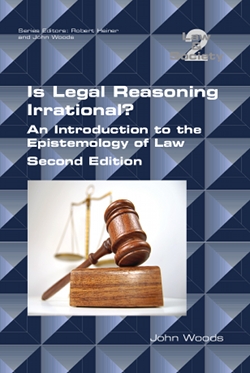 | Is Legal Reasoning Irrational? An Introduction to the Epistemology of Law
Second Edition
John Woods
This is a much revised and expanded second edition of the first book to examine the logical and epistemological assumptions that animate the proceedings of criminal trials in common law jurisdictions. The objective of trials is to arrive at true and just verdicts and, in particular, to avoid false convictions.
The concepts of greatest operational significance in a criminal proceedings are the logico-epistemic ones of evidence, testimony, expert opinion, proof, truth, truthfulness, belief, knowledge, argument, inference, relevance, probability and their like. Since there are well-established philosophical theories of all other matters, it is only natural that we seek their guidance in assessing how well or badly the criminal law in everyday practice heeds their criteria. The starting point of this volume is that the practices of law comply with these standards very badly; badly enough to call into question the law’s capacity to fulfill its obligation to avoid false verdicts.
Written for readers who care about truth and justice in the law yet may lack a technical acquaintance with logic and epistemology, this book crafts a case for the inadequacy of those technical standards for criminal law. It is a book that puts those standards on trial.
John Woods, is Director of the Abductive Systems Group in the Department of Philosophy in the University of British Columbia. He is a Fellow of the Royal Society of Canada.
September 2015/August 2018
978-1-84890-162-9
Buy from Amazon: UK US
|

